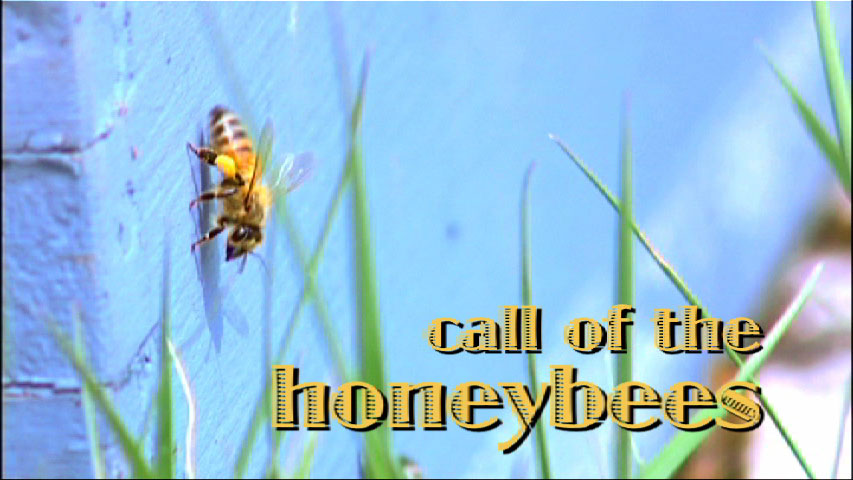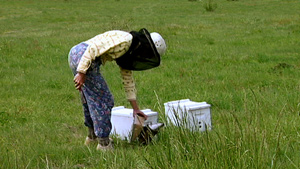Ever since Rachel Carson’s book “Silent Spring” first appeared, warning us against the dangers of chemicals in our natural world—we seem to be entering a new, more dangerous period, where the accumulated human effects upon the environment are producing an obvious toll. In this story, another human soul speaks out, this time, about the plight of the honeybees.
The impetus for this story originated over the past several months. A number of alarming stories were coming from news outlets that honeybees were facing a mysterious syndrome— Colony Collapse Disorder— that was leading to substantial population declines of honeybee colonies throughout areas of the world. I asked a friend of mine, who happens to be an entomologist, if he could refer me to a honeybee expert. He said, funny I should ask, he had just gotten out of a conference, and it’s being considered a big deal. He referred me to a couple of experts that included Dr. Lynn Royce.
After talking to Lynn, it was clear that our story would not be just about this disorder.
It would also be about Lynn and her passion for these bees, and an impassioned voice speaking on their behalf, and that of the environment. As Lynn warns in the piece, Colony Collapse Disorder, is a serious problem we must face with scientific honesty, or risk tremendous consequences not only for the honeybees, but for our species, as well. Honeybees are vital to human agriculture.
Through care and management of her own hives, she is attempting to breed bee colonies that are resistant to a devastating parasite, the varroa mite. If her breeding efforts succeed, it may point the way toward developing commercial strains of honeybees that will be resistant to this mite, reducing the impact of at least one important stressor likely contributing to the Colony Collapse Disorder.
Of course, we also were able to sample some of the honeybee’s honey. That was the sweetest part of this story.
Check out the recipe from this show: Honey Sweetened Apple Pie with Lemon Juice
Most of the videos featured on Cooking Up a Story were produced, filmed, and edited by Rebecca Gerendasy. Fred Gerendasy contributed as a writer to many of the posts and occasionally as the interviewer. Visit Rebecca Gerendasy Clay – Art and Fred Gerendasy Photography to see their current work.


